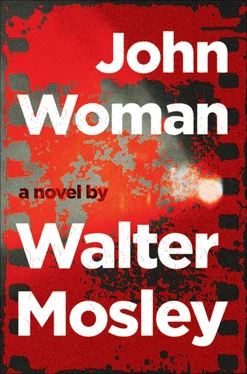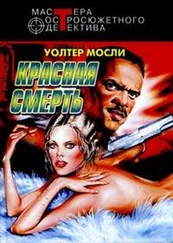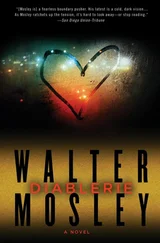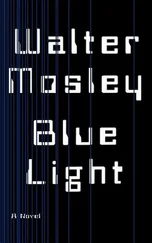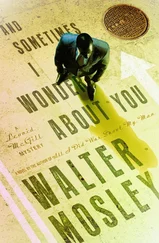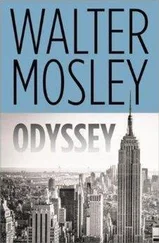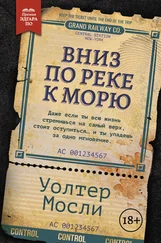“Annette Eubanks was sitting in a chair across the table from me just this morning,” the president said at last.
“And what was Auntie saying?” John used her nickname to show that he wasn’t afraid.
“That John Woman is both a Sophist and a charlatan.”
“Oh?”
“Is that all you have to say?” Luckfeld seemed a bit nonplussed.
“I don’t know in what context she meant. Who knows... maybe I’d agree.”
“Those are damning complaints against any professor.”
“Charlatan alone, maybe,” John allowed, “but sophism was an accepted form of education in ancient Greece and later in Rome. Without Sophists you’d have no Socrates or Plato, Aristotle or Cicero. I lecture, I challenge belief systems and I entertain. Nothing wrong with that.”
“Professor Eubanks says that you’re attempting to undermine the department by teaching that all, or most, history texts are fabrications designed to obscure the past rather than to elucidate it.” The president was smiling now.
“You see?” John said. “I do agree with her. I tell my students every semester that written history is an attempt to re-create so-called actual events according to the political, social or religious convictions of the author.”
“You make it sound like a conspiracy.”
“Conscious conspiracy is the best of it,” John said, his fragmented thoughts knitting together as he spoke. “The travesty is that a great many historians actually believe what they’re saying. Their motives are unconscious and cultural, based on prejudices and wish fulfillment. They create the ideal father as either a saint or an arch-villain; the mother is most often vilified and then relegated to the nursery. But truth... truth is in the distance. It might as well be a mirage because we see it, imagine it, but it’s a place we’ll never attain.”
“You think about these things a lot don’t you, John?”
“Day and night since I was a boy.”
“It’s rare to find an educator nowadays who sees his subject as both the beginning and the end.”
The young professor sipped from his water bottle, having nothing to say.
“I saw you on public access TV having a debate with Professor Carmody four months ago,” Luckfeld said. “I think it was from an earlier date.”
John smiled. “Poor Ira. He’s talks about Greek philosophers but he’s never taken the time to learn the language, relying instead on translators, most of them long dead. That never looks good.”
“You made a powerful enemy showing him up like that.”
John remembered sitting in the air-conditioned aluminum hut in the late afternoon at Lehman-Lawrence High School. Carmody, who looked something like Stalin, was so smug when they sat down. No one knew about the younger man’s facility with languages. It was one of his many secrets.
Every man is a Pandora’s box to someone, Herman Jones said. You shake someone’s hand risking eternal damnation.
The voice was so clear that John almost turned his head to see if there was someone sitting behind him.
“I didn’t expect a debate,” he explained. “I thought we were going to discuss simple phrases from Ira’s monograph.”
Colin Luckfeld took a swig from his bottle and stared.
John was happy that the college president and cult official had not offered him a glass. Then he wondered if maybe there actually was some kind of real insight in those mossy eyes.
“The history department review committee is going to call on you to deliver and defend the paper you proposed last September,” Luckfeld said. “What was that title again?”
“Written History,” John said: “Reconstruction, Deconstruction or Just Plain Destruction?”
The president smiled again. “Yes, that’s it.”
“When am I going to be asked to do this?”
“The committee is meeting tomorrow afternoon. They’ll set a date at that time.”
John gazed out at the deck. The president held parties out there when the weather was mild. The entire social sciences faculty had attended a get-together the previous spring.
“When are you going to settle on a specific subject?” Annette Eubanks, dean of the history department, had asked him. They were standing at the far end of the outside platform. Annette was around fifty with piercing eyes. Unmarried, she was rumored to have had affairs with young male and female students. Her hair was naturally golden shot through with barely perceptible strands of gray.
“My subject is the negation of the negation,” John answered.
“Nothing out of nothing,” the elder professor retorted.
John knew then he was going to have trouble with her.
“There’s something I’d like to ask of you, John,” President Luckfeld said.
“Certainly.”
“A man, an advisor to the board of directors, named Willie Pepperdine has asked to audit your Introduction to Deconstructionist Historical Devices. Mr. Pepperdine is an important fund-raiser for the school.”
“How does he even know about the class?”
“He takes his role with the university very seriously. After reading the entire course offering he came to me and asked this favor. I waited to make a formal request because Mr. Pepperdine was out of the country and wasn’t certain if he’d be back in time to attend classes.”
“I see. Well... There’s only been one meeting so far. Can he make this Thursday’s session?”
“Yes. But he might only be able to attend one class a week. His business has him traveling quite a lot. It’s only an audit; you won’t have to give him a permanent grade.”
“Anything else I should know about him?” John asked, he wasn’t sure why.
“He’s my age, very intelligent... dynamic. He’ll make a good addition I’m sure.”
“He’s an advisor to the board?”
Luckfeld nodded.
“Which board?”
It was an unspoken rule that no one asked Colin, or any other known cult member, about the Platinum Path — that just wasn’t done.
“Are you afraid of anything, John?”
“Everything.”
“How do you mean that?”
“I work mainly on instinct,” John Woman admitted. “My life, my lectures, my inquiries — all of these are reflexes of my body and my heart. I’m afraid of germs, German philosophers and jealous husbands — even when I’m not having affairs with their wives. But being afraid of something does not necessarily make me back off.”
“Most college professors I’ve met tell me that they live a life of the mind.”
“At best,” John said and then paused to consider; “at best they’re lying.”
“And at worst?”
“They’re fools.”
Colin Luckfeld stood up.
John followed his lead.
“It was good talking to you, John. I hope we achieved something here. And about Mr. Pepperdine.”
“Yes?”
“He sits on any board he chooses.”
“That includes the Platinum Path?” John asked, feeling out of control.
“Those lying historians of yours will one day claim that we conquered the world with little to no violence.”
Walking to his car John wondered why he’d asked about the Platinum Path. The cult or sect or philosophy, whatever it was, didn’t concern him.
“I asked because it makes me feel alive,” he said to no one. “Negotiating dangerous grounds is what we human beings are made for — body and mind.”
There were times John had to speak out spontaneously. Too much of his life had been conducted in secret — at least he could proclaim random truths in empty spaces now and then.
The words he spoke Herman Jones had once said about great generals, incurable sociopaths and most of the rest of humanity. Standing next to his car, on the third level of the parking structure, he thought about self-taught Herman Jones, who was smarter than anyone he’d met at any college or university. After appreciating the idea of his father a moment more, John got into his bright green 1957 Thunderbird convertible and set out for Spark City, some sixty miles off in the seemingly endless desert.
Читать дальше
